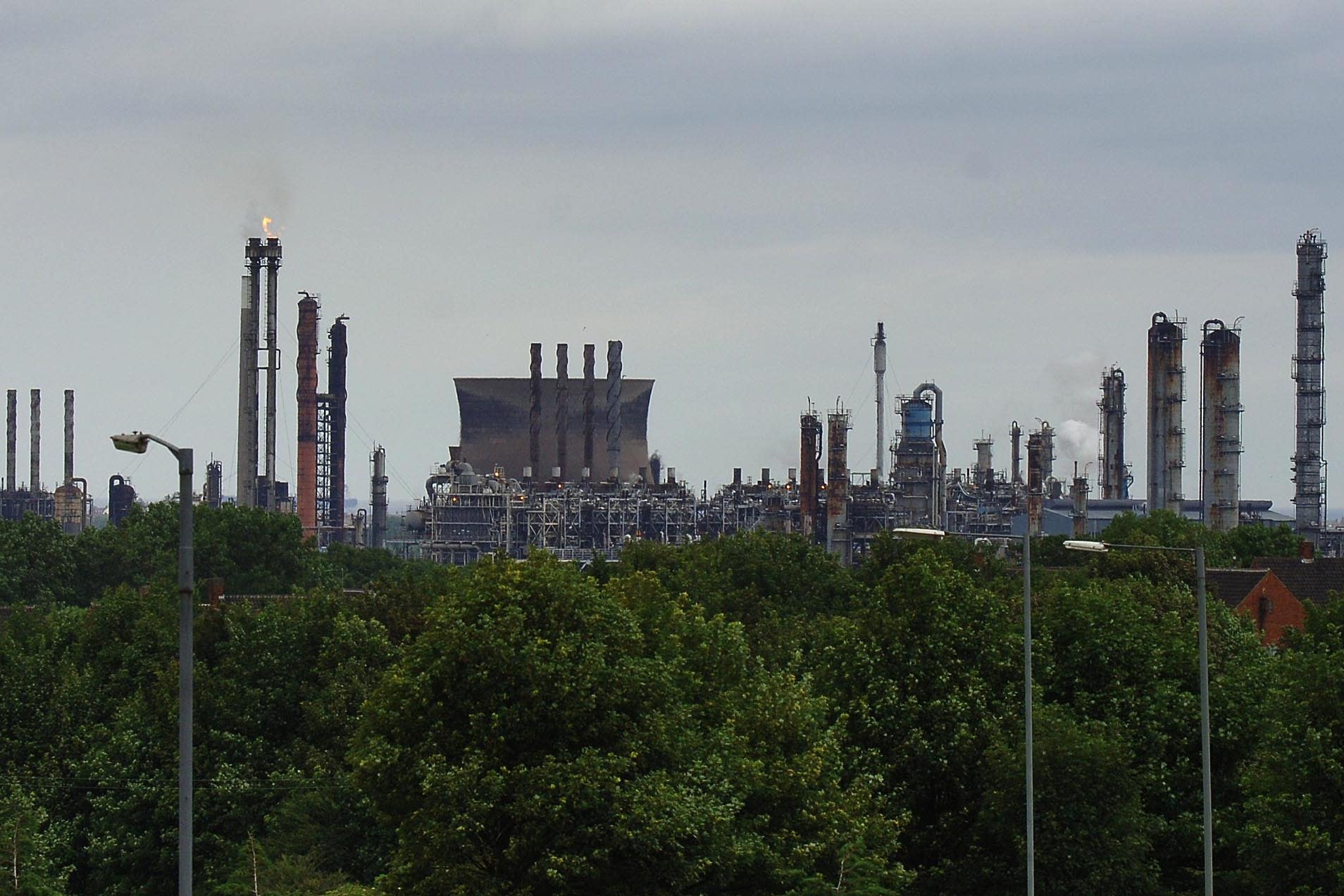Future of chemicals sector at risk without plan to cut fossil fuels – experts
Researchers assessed how much Britain’s policy supports the green transition in the chemicals sector.

Your support helps us to tell the story
From reproductive rights to climate change to Big Tech, The Independent is on the ground when the story is developing. Whether it's investigating the financials of Elon Musk's pro-Trump PAC or producing our latest documentary, 'The A Word', which shines a light on the American women fighting for reproductive rights, we know how important it is to parse out the facts from the messaging.
At such a critical moment in US history, we need reporters on the ground. Your donation allows us to keep sending journalists to speak to both sides of the story.
The Independent is trusted by Americans across the entire political spectrum. And unlike many other quality news outlets, we choose not to lock Americans out of our reporting and analysis with paywalls. We believe quality journalism should be available to everyone, paid for by those who can afford it.
Your support makes all the difference.The outlook for the UK’s chemical industry is “worrying” without a plan to eliminate its reliance on fossil fuels, sector experts have warned.
Researchers from the think tank Green Alliance assessed how much Britain’s policy supports the transition in the sector, which relies heavily on fossil fuels for energy and as a feedstock.
They found that 140,000 jobs in the industry are at stake over the long term if it remains dependent on fossil fuels, and policymakers fail to plan for its decarbonisation.
It comes as the steel industry, which employs far fewer people at an estimated 33,700, hit the headlines in recent months due to job losses at Tata Steel as it switches to a greener form of production at its Port Talbot plant in south Wales.
The UK has a long history of innovation and expertise in chemicals but the government has never really understood our industry.
The Green Alliance researchers found that if plans for a greener, modernised chemical sector are written into the UK’s forthcoming industrial strategy, it could realise opportunities for growth and support the UK’s economic resilience.
Industrial heartlands in the North West, Teesside and Humberside in particular would be likely to benefit, they added.
The sector is responsible for 19% of the UK’s industrial emissions but it also provides essential components for net zero technologies, such as batteries, wind turbines and heat pumps, the researchers said.
This makes it vital to phasing out fossil fuels and decarbonising supply chains across the wider economy.
But Green Alliance warned that the UK sector is highly exposed to international competition due to comparatively high operating costs and the global market.
Industry output in 2023 fell by 9% and employment by 7%, the researchers found.
They also highlighted CF Fertilisers closing their last ammonia plant in Billingham, County Durham, in 2022, citing high natural gas prices and rising carbon costs.
While the company had looked into decarbonisation options, it chose not to wait for Government support on carbon caption and storage (CCS), one of the main solutions on offer.
The Government’s strategy to cut emissions in the chemical industry has largely focused on CCS, backed by a promise of £20 billion in investment, and a switch to hydrogen fuel, supported by £240 million in capital expenditure.
We need a UK chemicals industry, the highly skilled jobs it provides, and the contribution it will make to a greener economy.
Two industrial clusters – HyNet in the North West, and the East Coast Cluster connecting Teesside and Humberside – are expected to connect to CCS and hydrogen infrastructure around 2027.
However, the researchers found that other policies essential to a greener chemicals industry are lagging far behind, such as the Government not adequately supporting electrification and having no incentives for companies to replace fossil fuel feedstocks.
Stakeholders told Green Alliance researchers that the complexity of the chemicals industry meant policymakers struggled to understand it, and it could prevent the sector from speaking with one voice.
David Bott, head of innovation at the Society of Chemical Industry, said: “The UK has a long history of innovation and expertise in chemicals but the government has never really understood our industry.
“It’s now under threat from international competitors offering better incentives to pursue a greener future, and better-aligned regulation. We need an industrial strategy that helps steer the UK chemicals industry on to a positive path, directing its attention towards long term risks and opportunities.”
Liam Hardy, senior policy analyst at Green Alliance, said: “We need a UK chemicals industry, the highly skilled jobs it provides, and the contribution it will make to a greener economy.
“But it will take deliberate government policy to find a way forward: for example, by requiring a certain amount of carbon in chemicals to come from greener sources through a ‘green carbon mandate’.
“Businesses we spoke to also said innovation funding is often complex, overly prescriptive and focused on the short term.
“The forthcoming industrial strategy is a key moment for the Government to set out a plan for a thriving green chemical industry fit for the future.”
A Government spokesperson said: “Our new industrial strategy will deliver long-term, stable growth that works for all workers and businesses right across the UK.
“That includes backing our strong chemicals industry, which exported nearly £60 billion last year and is a crucial part of delivering a fairer, greener future and meeting our 2050 net zero target.”